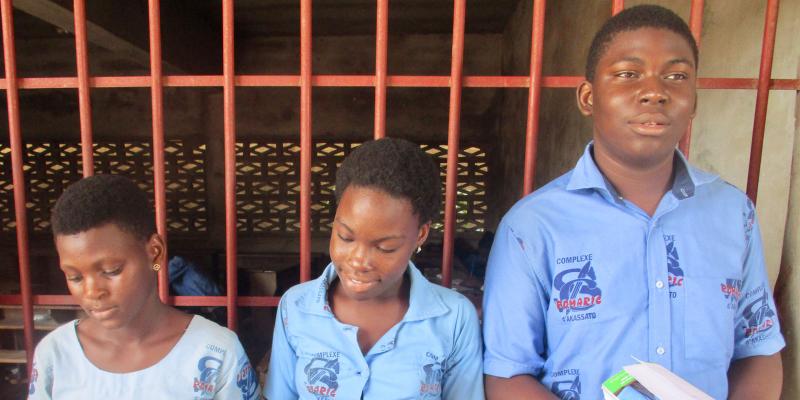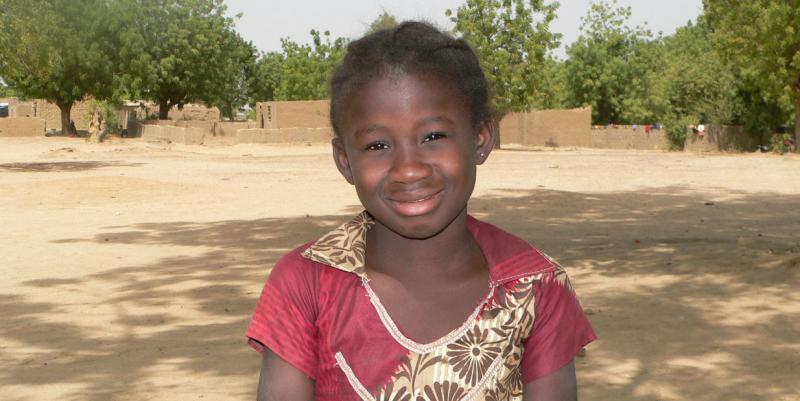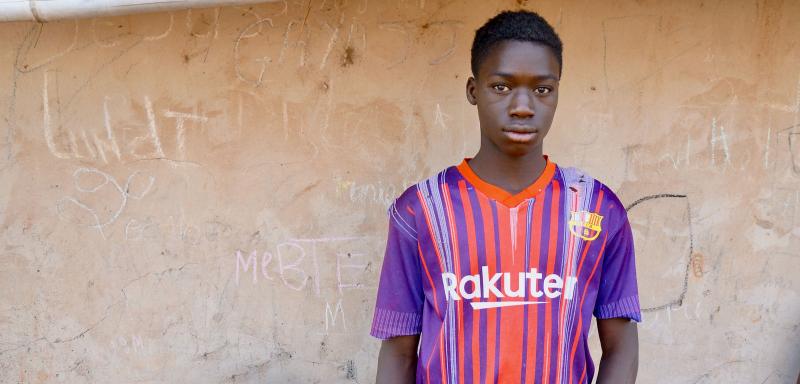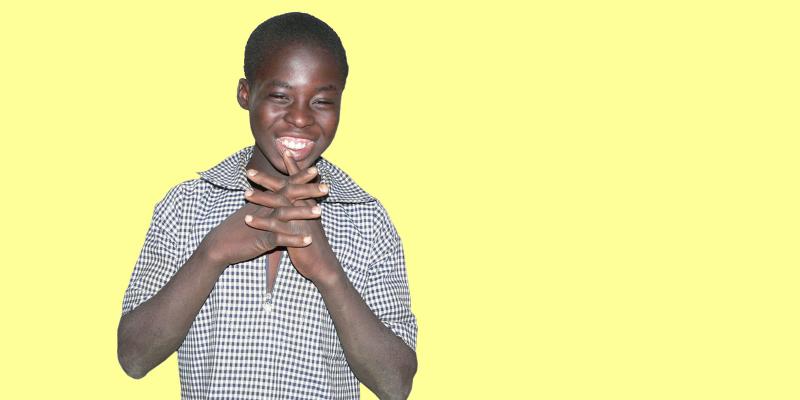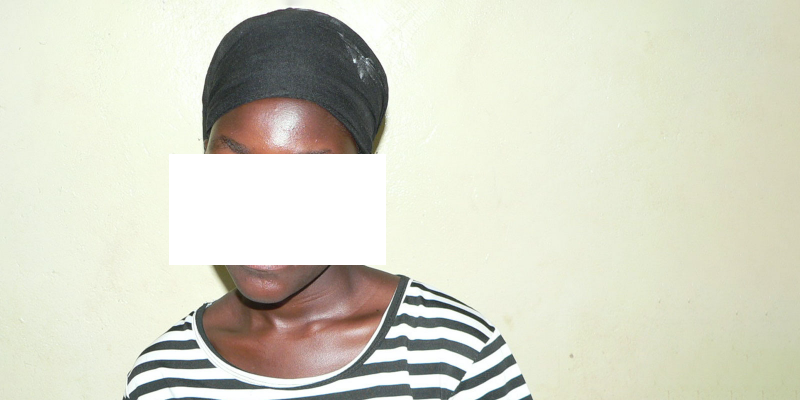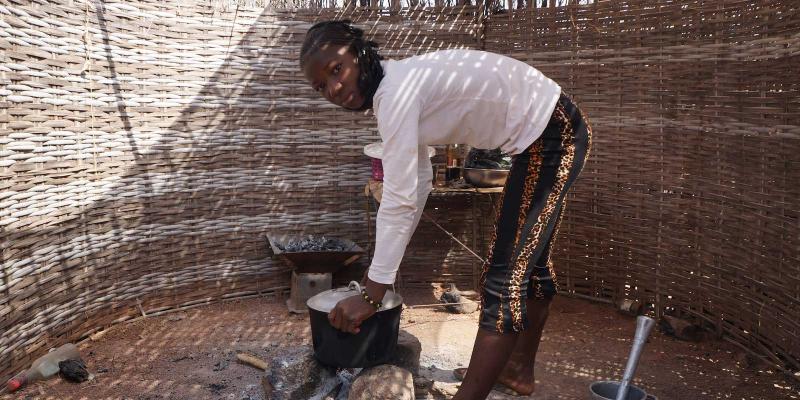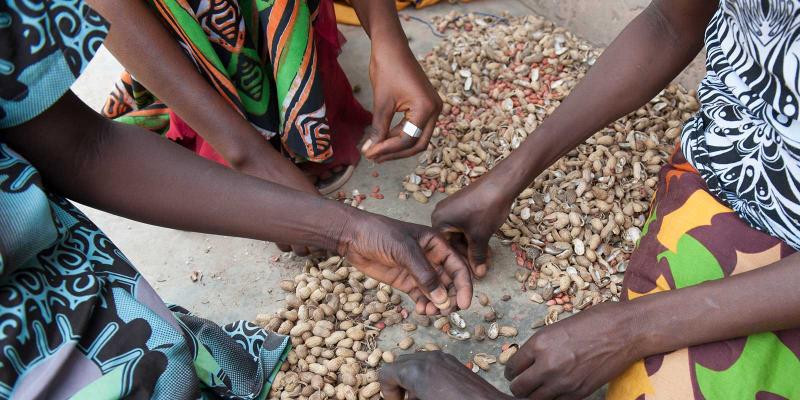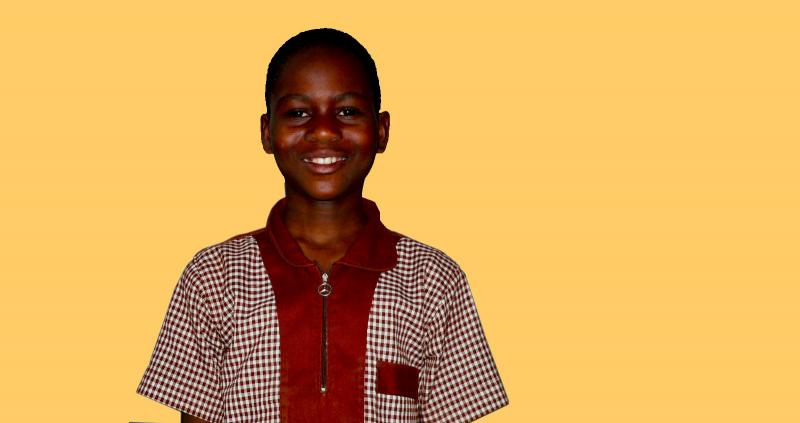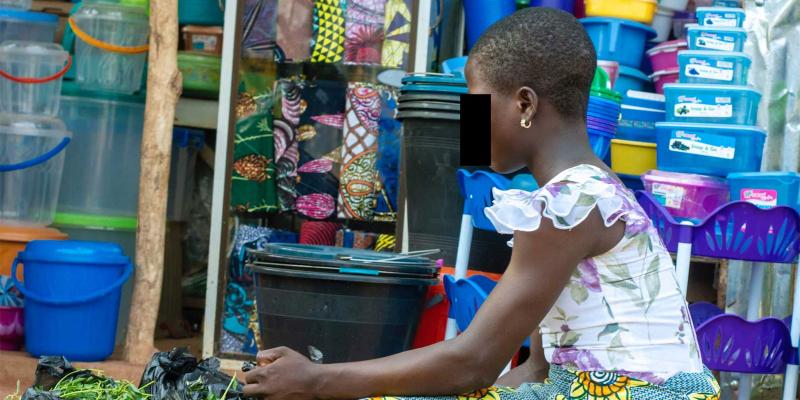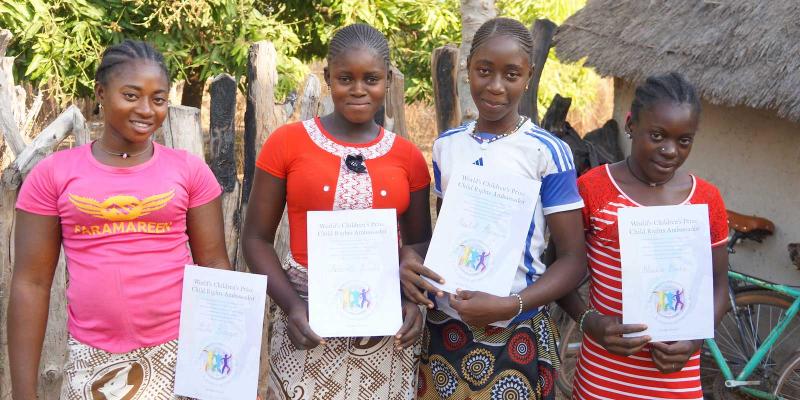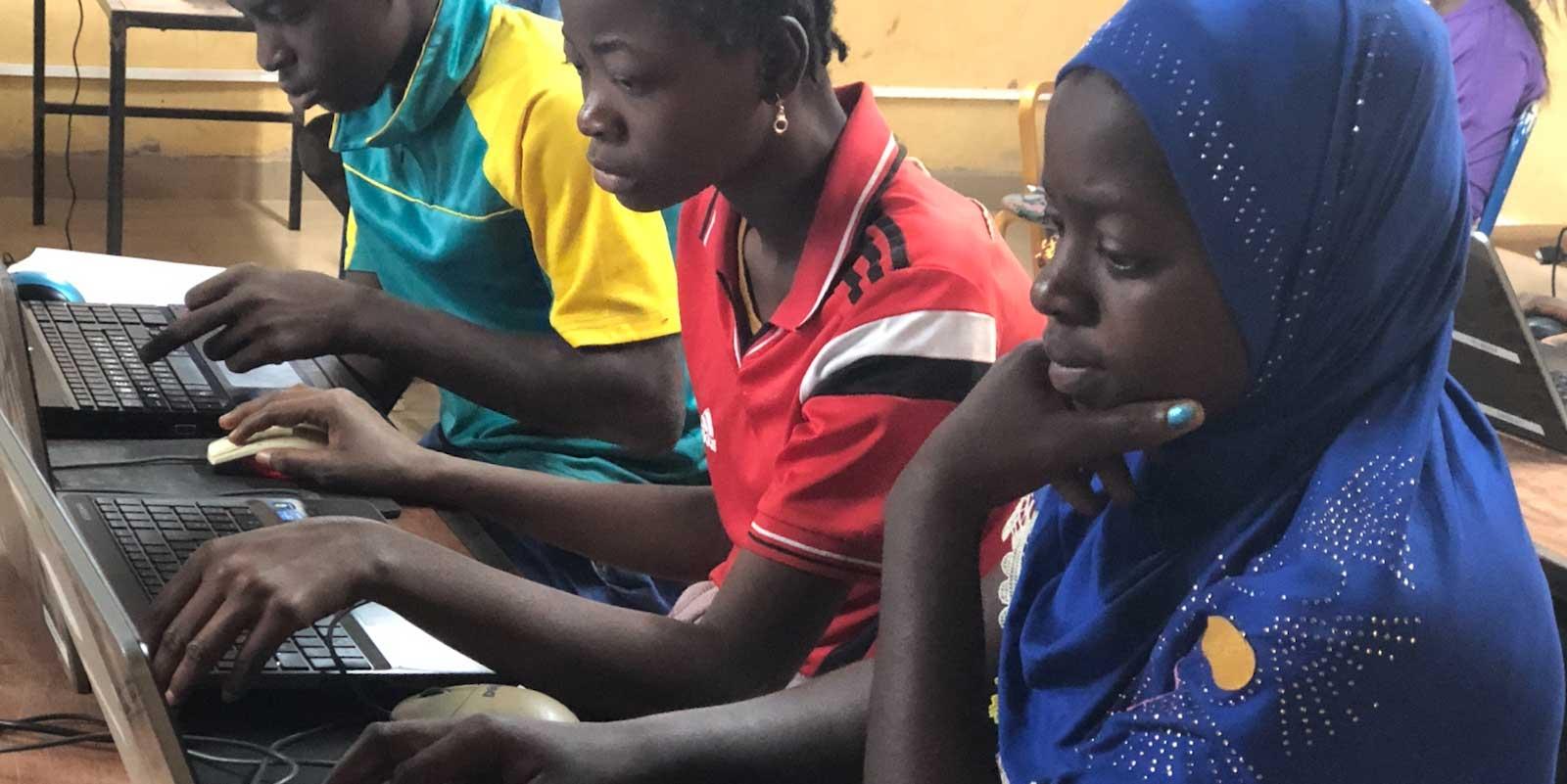
“I want to see changes, so that girls are no longer treated like slaves. I want us girls to have the same rights as boys, and to have the chance to study for longer before having to get married. And people need to listen to us girls, because we have ideas that can solve problems,” says Anita, 14, from the village of Nakamtenga in Burkina Faso.
‘‘When I was at nursery, I became ill with a condition that affected my left leg and right thigh. After a few months at home, I developed a sore in my left leg. The doctor said he would have to operate. When I started my first year at school, the doctor X-rayed my right thigh and said that he needed to operate on that one too. I always have problems walking, but I’m very proud of the fact that my parents supported me and didn’t reject me, even though we are poor farmers.”
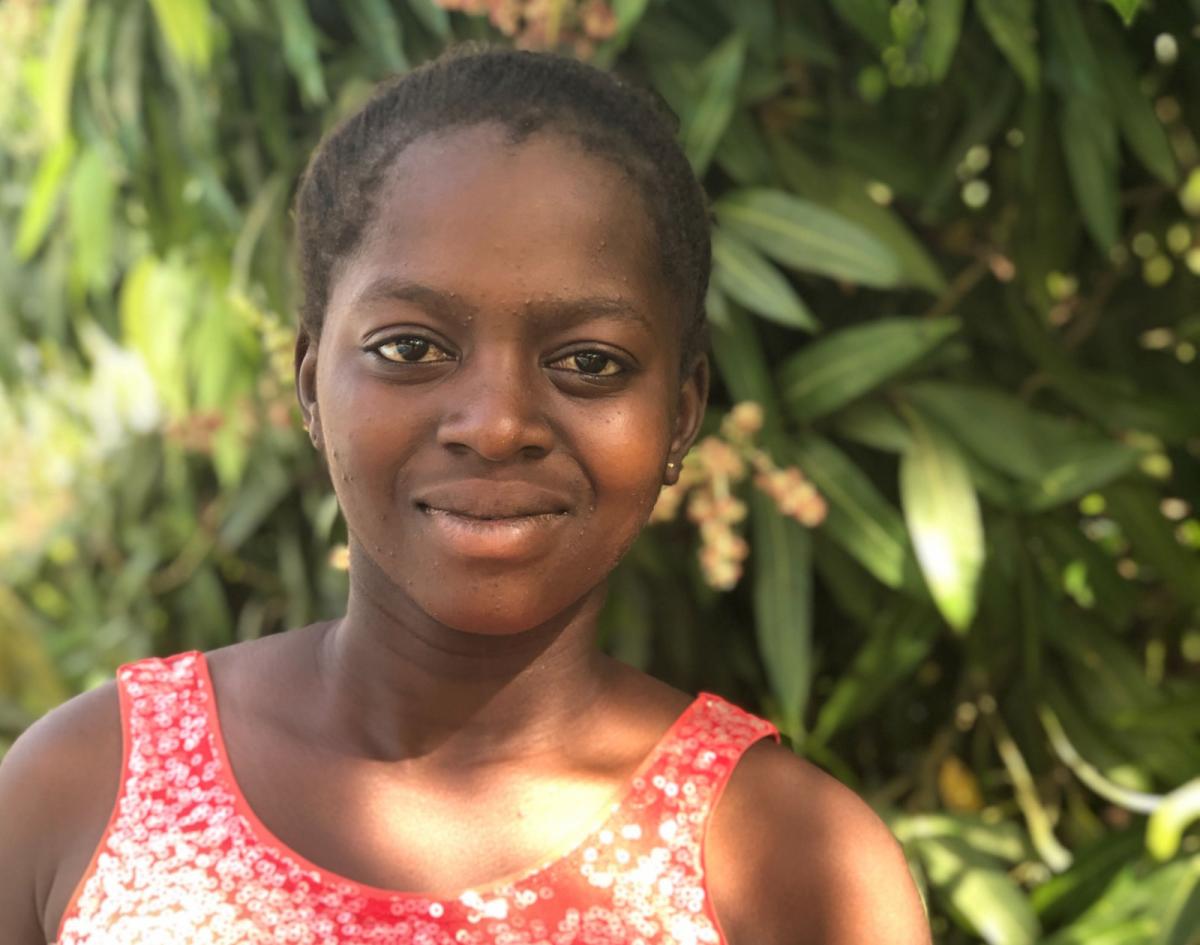
Friends’ rights violated
“It’s important to be aware of children’s rights, so we can tell those who are violating them and teach others who aren’t aware of children’s rights that they exist.“Girls’ rights are not respected here. My friend Alice was married off by her dad at the age of 14. She refused, but her dad forced her. She cried the whole time. Alice wanted to run away, but her husband made it impossible for her to. She had her first child at the age of 15.
“Another of my friends, Ami, had to quit school. Her parents said that girls don’t need to go to school; their role is to look after the home. Her dad stopped paying her school fees and she had to leave school in fourth grade. Ami cried and cried, and begged her parents to let her carry on at school, but they wouldn’t let her. When she was 15, her dad forced her to marry an old man.
“I want to see changes, so that girls are no longer treated like slaves. I want us girls to have the same rights as boys, and to have the chance to study for longer before having to get married.”
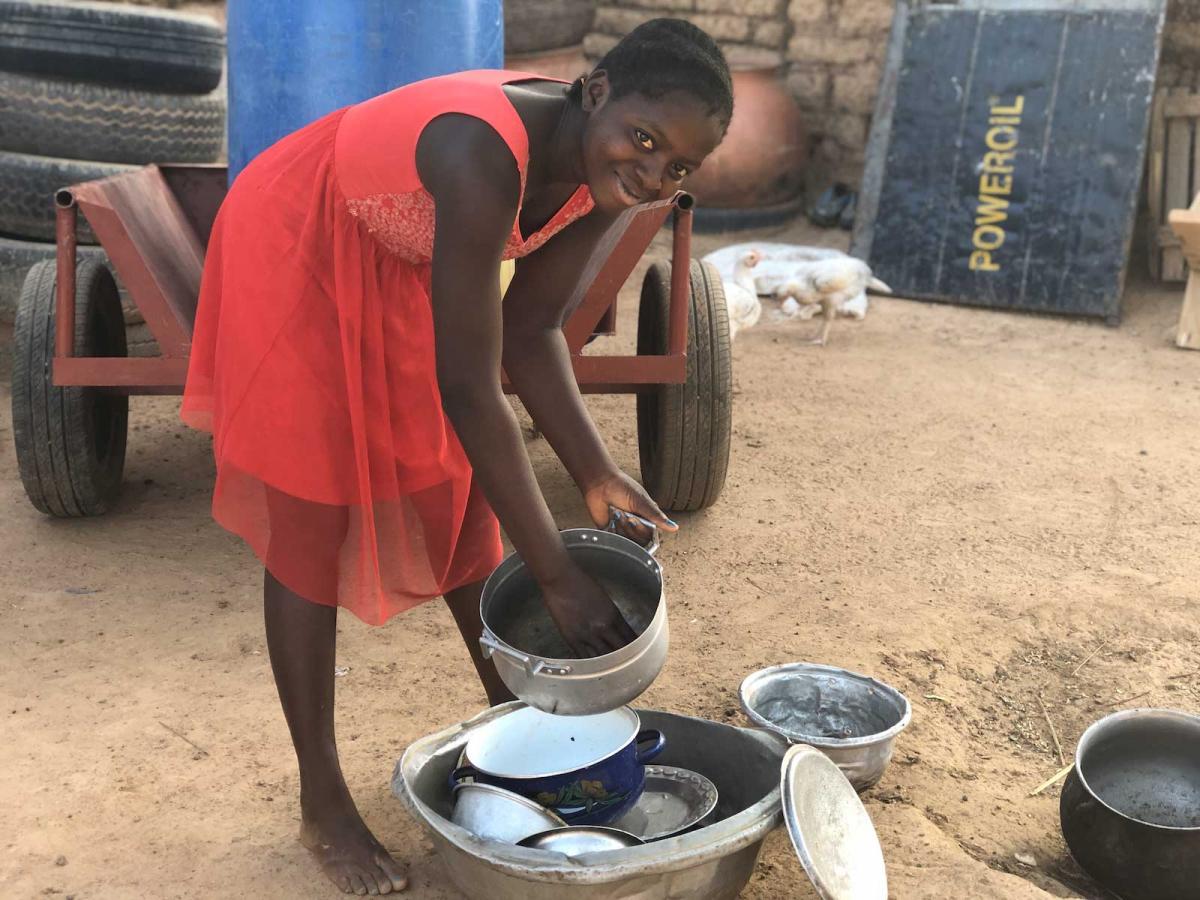
“I want to see changes, so that girls are no longer treated like slaves. I want us girls to have the same rights as boys, and to have the chance to study for longer before having to get married.”
My siblings agree
“I speak to my siblings, parents, grandparents and friends about how important it is for everyone to know about the rights of the child, particularly girls’ rights. We shouldn’t be subjected to injustices and we need to have an education; we shouldn’t be married off and should have the right to speak freely. We should have the same rights as boys.“My brothers, sisters and friends say they think that goes without saying. But my older relatives, such as my grandparents, think there’s no point in educating a girl. Girls are married off at a young age, because that’s the custom here. And they say that girls don’t have the right to say what they think, and that only boys have this right. I think girls should be listened to, because sometimes we have ideas about how to solve problems.
“In my family, boys and girls share the same tasks at home, because my parents have understood that girls’ rights are important, and that all children should be treated equally. I think they’ve made a good choice, because boys and girls should have the same rights." “It’s important to be a Child Rights Ambassador, because then you can share knowledge about the rights of the child. It feels fantastic to get together with others to talk about what changes we want to see.”
Related stories
Långgatan 13, 647 30, Mariefred, Sweden
Phone: +46-159-129 00 • info@worldschildrensprize.org
© 2020 World’s Children’s Prize Foundation. All rights reserved. WORLD'S CHILDREN'S PRIZE®, the Foundation's logo, WORLD'S CHILDREN'S PRIZE FOR THE RIGHTS OF THE CHILD®, WORLD'S CHILDREN'S PARLIAMENT®, WORLD'S CHILDREN'S OMBUDSMAN®, WORLD'S CHILDREN'S PRESS CONFERENCE® and YOU ME EQUAL RIGHTS are service marks of the Foundation.



